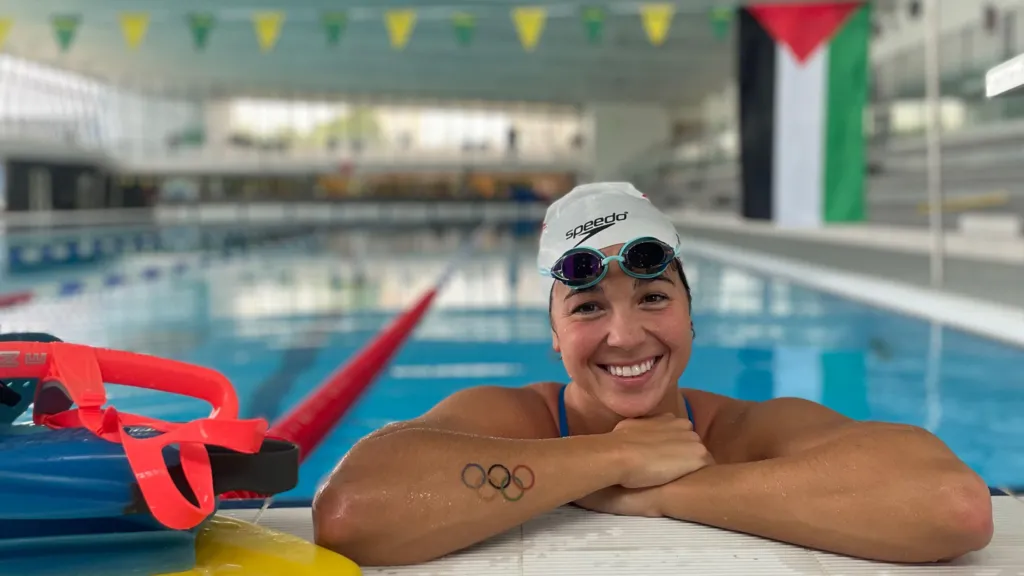The Journey to Paris: Dreams and Dedication
As the world eagerly anticipates the upcoming Olympic Games in Paris, athletes from around the globe are gearing up to showcase their talents on the sport’s biggest stage. Among them is Palestinian-American swimmer Valerie Tarazi, whose journey to the Olympics is both a personal triumph and a poignant tribute to her homeland. Her story embodies the intersection of athletic ambition and deep personal sacrifice, highlighting the broader struggles faced by Palestinians amidst ongoing conflict.
From Inspiration to Aspiration: Valerie Tarazi’s Path
Valerie Tarazi’s journey to the Olympics began with a moment of inspiration that occurred in 2008, when she watched Michael Phelps achieve a historic eight gold medals at the Beijing Olympics. This iconic moment sparked a dream within her: to become an Olympian herself. For Tarazi, Paris represents the realization of that dream—a dream shaped by years of rigorous training and unwavering determination.
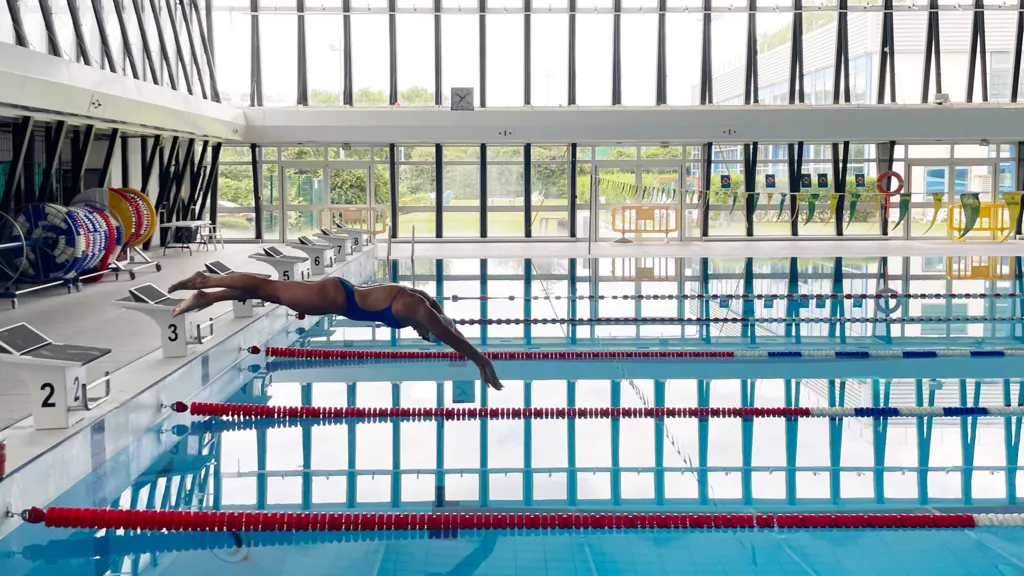
But for Tarazi, competing in Paris is more than just a personal achievement. It is also a profound act of commemoration for those who have suffered in her ancestral homeland. Born and raised in the United States, Tarazi is deeply connected to her Palestinian roots through her Christian family from Gaza. The recent escalation in Gaza, which has resulted in tens of thousands of deaths, has deeply affected her. She reflects on this immense loss with a sense of duty, viewing her participation in the Olympics as a way to honor the memory of her fallen relatives and the broader Palestinian community.
The Human Cost of Conflict: Tarazi’s Personal Connection
The ongoing conflict in Gaza has cast a long shadow over the lives of many Palestinians, including Tarazi. Last December, a church in Gaza was hit during intense bombing, resulting in the deaths of four members of her extended family. The continuous rise in the death toll, now approaching 40,000, has taken an emotional toll on her. Tarazi’s statement reveals the personal anguish felt by many Palestinians, who see their friends, family, and loved ones affected by the violence.
Despite her own challenges, Tarazi remains acutely aware of the privilege she holds. Her intense training schedule and the sacrifices she has made to compete at this level pale in comparison to the daily struggles faced by Palestinians back home. For her, representing her people on the global stage is a profound honor and a testament to their resilience.
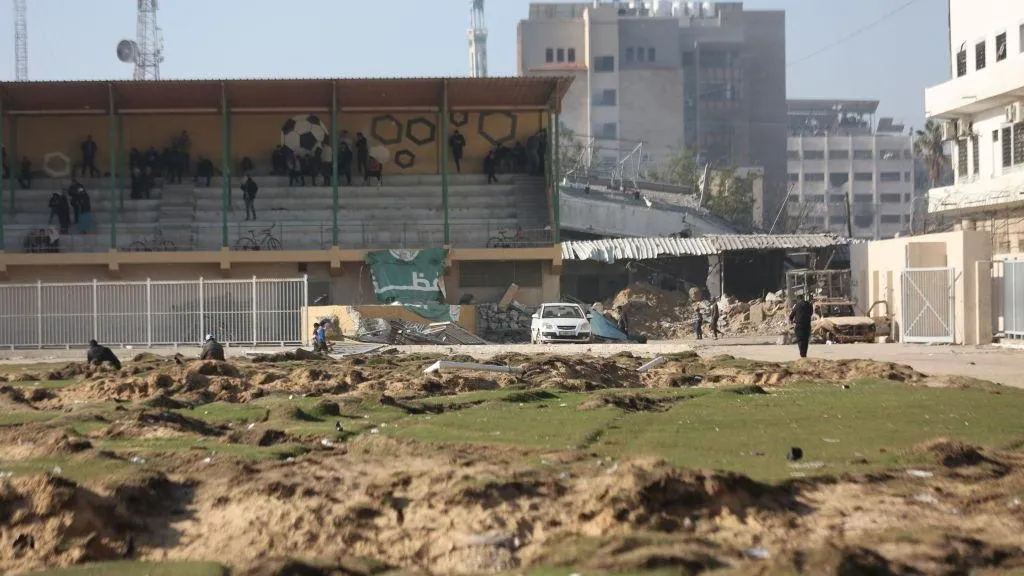
The Struggles of Other Palestinian Athletes
While Tarazi prepares to compete, other Palestinian athletes face a different reality. Tamer Qaoud, a 1500-meter runner from Gaza, embodies the hardship and determination of many athletes whose dreams are hindered by conflict. Qaoud’s personal journey is marked by displacement and loss, reflecting the broader impact of the war on Palestinian sports and daily life.
Tamer Qaoud’s Battle Against the Odds
Tamer Qaoud’s story is one of resilience amidst adversity. His house in Gaza has been destroyed, and he and his family have been forced to move multiple times due to the ongoing war. Currently residing in a tent in Deir el-Balah, Qaoud’s circumstances starkly contrast with the professional environment typically associated with Olympic athletes. Despite the hardships, including the destruction of his training grounds and the loss of his coach in an Israeli airstrike, Qaoud continues to train with hope.
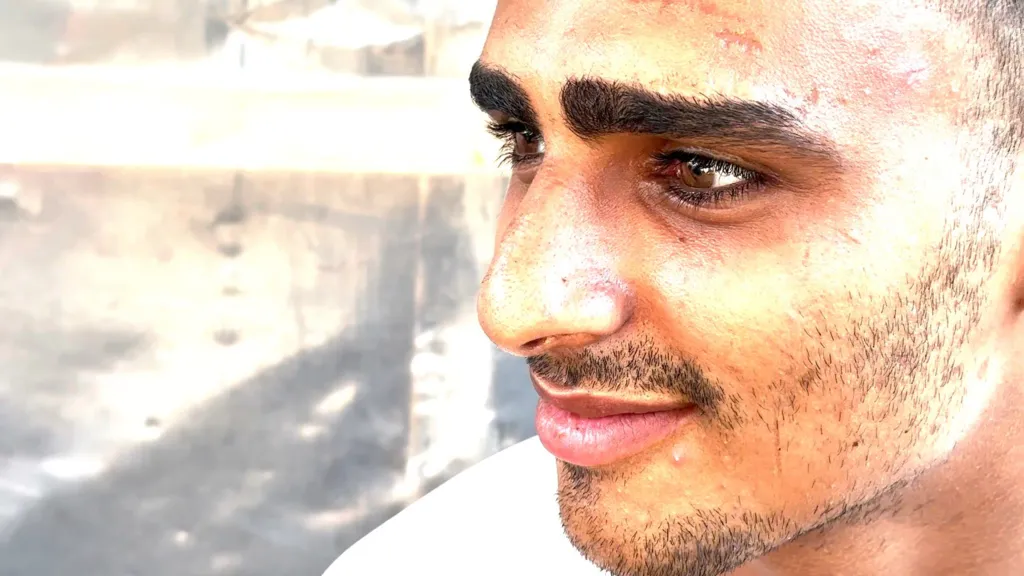
His aspiration to reach the Olympics was significantly impacted by the war. Although he has already represented his country in the Arab Games and the Asian Games, his path to Paris was thwarted by the conflict. Qaoud’s best times fall short of Olympic qualifying marks, and the ongoing war has made it impossible for him to pursue his Olympic dream this year. Nevertheless, he remains determined to continue training and hopes to one day achieve his goal of competing at the highest level.
The Impact of War on Palestinian Sports
The war has had a devastating impact on the Palestinian sports community. The Palestinian Football Association reported that 182 athletes and sports officials have been killed since the escalation of the conflict last October. The destruction of facilities, loss of coaches, and the displacement of athletes have created significant barriers to pursuing competitive sports.
Qaoud’s dream of competing alongside the world’s best, such as Jakob Ingebrigtsen, the current men’s 1500-meter world champion, has been hindered by the war. Despite these setbacks, Qaoud’s resolve to overcome these challenges and continue his athletic journey remains steadfast.
Palestinian Swimmers in the Spotlight
In addition to Tarazi, Palestinian swimmer Yazan al-Bawwab represents another facet of Palestinian perseverance in sports. Al-Bawwab’s participation in the Paris Olympics highlights the unique challenges faced by Palestinian athletes, particularly in a sport like swimming, which requires specialized infrastructure that is lacking in Palestine.
Yazan al-Bawwab’s Olympic Journey
Yazan al-Bawwab, like Tarazi, was born and raised abroad, but he carries his Palestinian identity with pride. His statement about the lack of swimming facilities in Palestine underscores the significant barriers faced by athletes from the region. Despite these challenges, al-Bawwab’s participation in the Olympics serves as a powerful symbol of Palestinian resilience and determination.
Al-Bawwab’s pride in representing Palestine on the global stage is evident. His participation is not just a personal achievement but also a statement of solidarity with his homeland. He emphasizes that, despite France’s lack of official recognition of Palestine as a country, he is present in Paris to raise the Palestinian flag and bring attention to the struggles faced by his people.
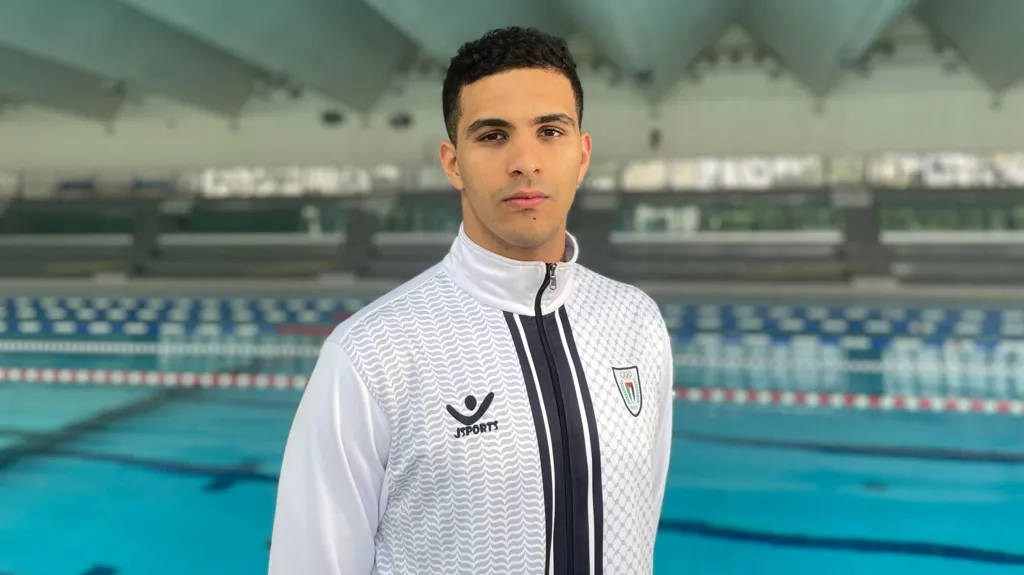
The Broader Implications: A Call for Recognition and Support
The stories of Valerie Tarazi, Tamer Qaoud, and Yazan al-Bawwab highlight the complex interplay between personal ambition and national identity amidst the backdrop of conflict. Their experiences shed light on the broader challenges faced by Palestinian athletes, who must navigate not only the demands of their sport but also the severe impacts of ongoing violence and displacement.
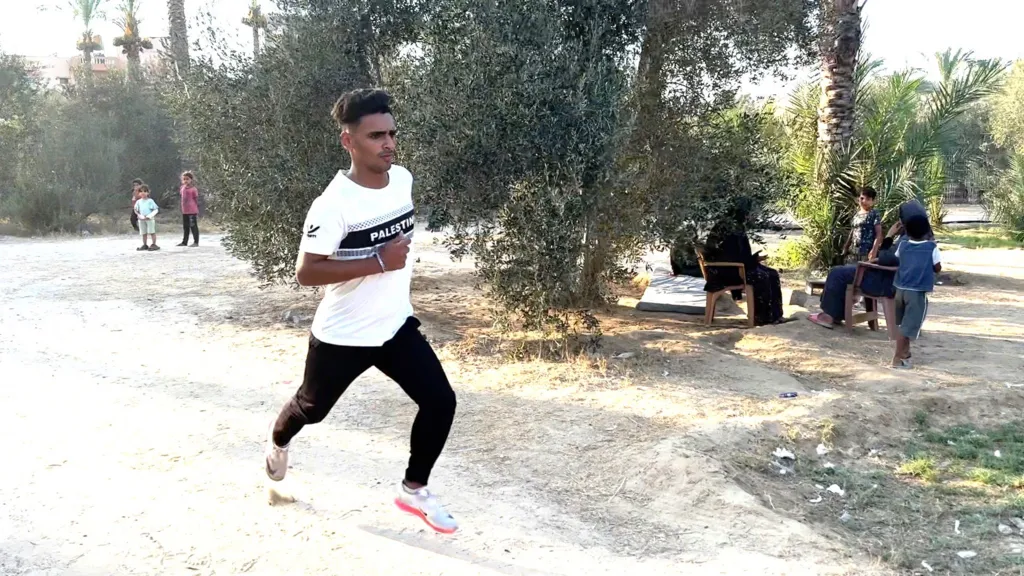
The Role of International Recognition
The recognition of Palestine by the International Olympic Committee and three-quarters of UN member states is a significant step, but the absence of recognition from major nations, including the host of the current Olympic Games, reflects ongoing political complexities. For athletes like Tarazi and al-Bawwab, participating in the Olympics is both a personal and political statement. Their presence on the international stage serves to highlight the resilience of Palestinians and the need for greater global support and understanding.
The Need for Continued Support and Solidarity
As the Olympics continue in Paris, the stories of Palestinian athletes remind us of the broader context of their participation. Their achievements and struggles serve as a powerful testament to their determination and the enduring spirit of their people. The international community’s support for these athletes and their cause is crucial in ensuring that their voices are heard and their stories are acknowledged.
Conclusion
The participation of Palestinian athletes in the Paris Olympics is a powerful symbol of resilience and hope. Valerie Tarazi, Tamer Qaoud, and Yazan al-Bawwab each bring their unique stories to the global stage, embodying the struggles and aspirations of their people. Their achievements and sacrifices reflect the broader challenges faced by Palestinians and serve as a call for greater recognition and support. As they compete in Paris, they carry not only their personal dreams but also the hopes and pride of their homeland.


